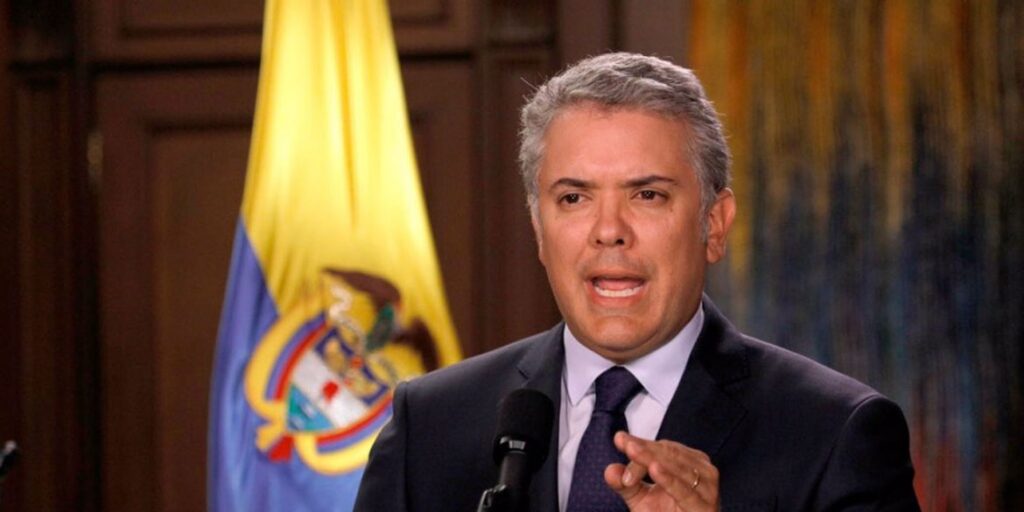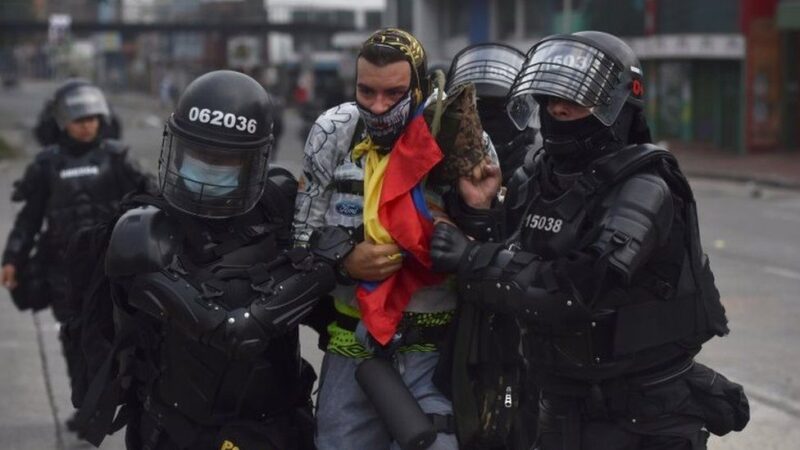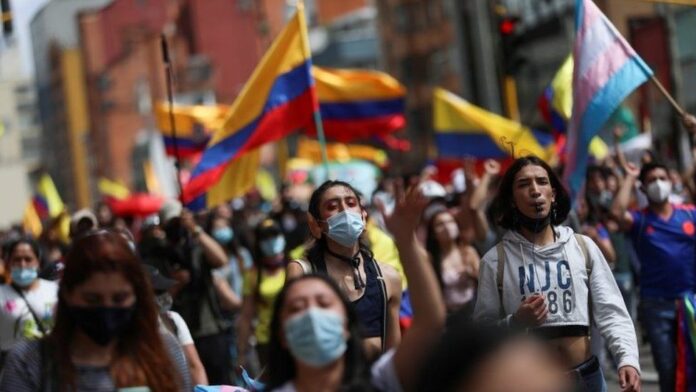On 28 April 2021, tens of thousands of Colombians took to the streets against a controversial health care reform, Bill 010, and the associated increase of the Value Added Tax (VAT). The protesters have come from many unions, student groups, and political parties. They have collectively banded together under the National Strike Committee.
Protests have continued to grow, leading to the deployment of 4000 troops. On 2 May, President Ivan Duque announced a withdrawal of the tax plan. He warned that a similar reform was needed. Protests have continued, with more comprehensive demands. Their demands include an expansion of Basic Income, protection of the poorer sections of the economy, protection of housing, free college education, and a strong mass vaccination plan.

Colombia was one of the worst-hit countries in Latin America during the COVID19 pandemic. With a death toll of over 82,000, it follows Brazil and Mexico in lives lost. The GDP is expected to drop by 7% in 2020. The country has an unemployment rate of 14%. In 2020, 36 lakh people have been pushed into poverty.
To cope with the increasing poverty, Colombia provided a basic income to help nearly 30 lakh people. This amount helped those families to survive the pandemic, but it was not nearly enough given the breadth of the economic devastation.
In April 2021, the government announced a plan to expand the reach of the basic income scheme, but with higher taxes and cuts in spending on healthcare. Protesters have pointed out that the pandemic is not the time to cut spending on healthcare. The proposal merely shifts the burden around the poor and middle classes.
Universal Basic Income
Extreme inequality has created an interesting paradox. Increased productivity of labor has led to unprecedented scales of hoarded wealth in the hands of the rich. This hoarding creates gridlock in the movement of capital. On the other end, as money cannot flow, there is a rising class of impoverished poor that has no wealth. The working class can no longer buy enough to sustain the economy. One way to resolve this is through Universal Basic Income.
Universal Basic Income is a program that has support from the right and the left. The rich see this as a way of greasing the economy but would like to see it funded by cuts on spending on public infrastructure. The left sees it as a way to redistribute wealth from those who have it to those who need it. The left would like it to be funded by taxes on the wealthy.
Positions regarding universal basic income are diverse. The devil is in the details. Columbia is a prime example of that.
In April 2020, when the COVID19 pandemic began, the government introduced the Ingreso Solidario (Solidarity Income). The program provided approximately Rs. 3000 per month to low-income populations. The cost of living in Colombia is about 15% higher than in India. In a population of 500 lakhs, nearly 30 lakh people had access to this income.
The program helped a lot of people, but its reach was very narrow. Duque proposed to expand the Ingresso Solidario to more people. To fund the program, he wanted to increase VAT and defund the Colombian healthcare system. This is the right-wing model of Universal Basic Income. VAT, like most sales taxes, is regressive and disproportionately is paid for by the poor. Social infrastructure is also disproportionately used by the poor.
With these reforms, Duque is trying to leave the wealth of the wealthy out of the scheme, and breed resentment among the working class.
The protesters have been mostly peaceful, though there have been reports of vandalism of buses. Nearly 2000 cases of violence by police against protesters have been reported, with over 40 protesters confirmed killed.

Currently, the Protesters are demanding dialogue with the Colombian state, the protests are in their fourth week.




[…] Taxing the poor to help the poor: Behind the protests in… […]